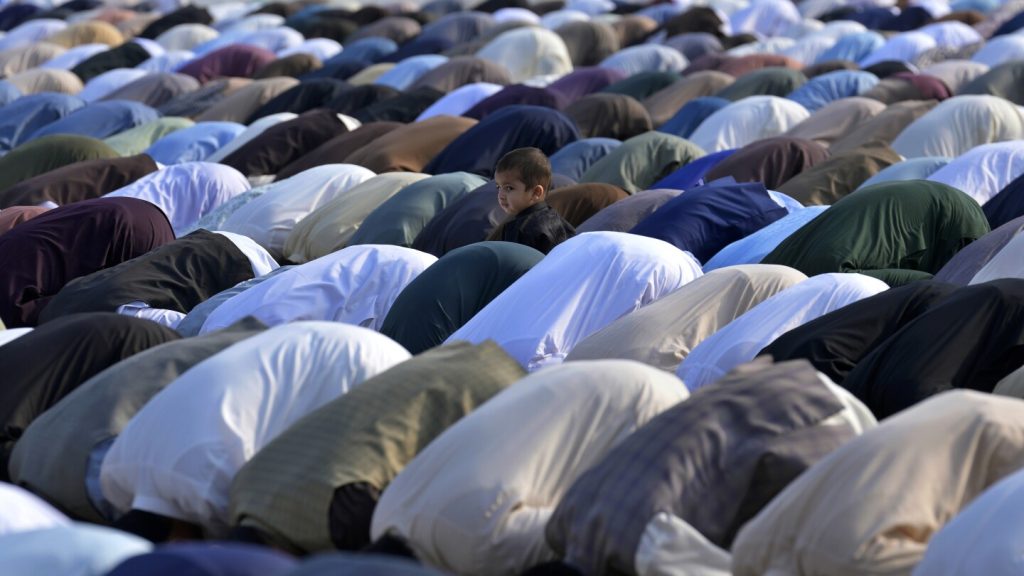Muslims around the world celebrated Eid al-Fitr, marking the end of Ramadan with family reunions and sweet treats. However, the celebrations were overshadowed by the worsening humanitarian crisis in Gaza and Israel’s expected offensive in Rafah. Efforts from Western allies to halt the fighting after six months of war have not been successful. In Istanbul, worshippers gathered at the Aya Sofya Mosque for prayers, showing support for Gaza.
Turkish President Erdogan sent a message of support to Gaza, calling it a “bleeding wound on the conscience of humanity.” Prayers in Kenya also focused on the war in Gaza, with Imam Abdulrahman Musa urging people to remember the plight of Palestinians. In Indonesia, a majority-Muslim country, the annual homecoming known as “mudik” was in full swing, with people traveling back to their villages for the holiday.
Before Eid al-Fitr, markets were bustling with shoppers buying clothes and sweets. Flights, buses, and trains were overbooked as people traveled to celebrate the holiday with loved ones. Despite economic difficulties during Ramadan, many were happy to celebrate Eid al-Fitr as a day of victory. Throughout Jakarta, residents offered prayers at mosques and set off firecrackers to mark the holiday.
In Pakistan, authorities deployed security forces to maintain order at mosques and marketplaces. In Malaysia, ethnic Malay Muslims performed prayers amid controversy over socks printed with the word “Allah.” Prime Minister Anwar Ibrahim called for unity and reconciliation in his message on the eve of Eid. The owners of a convenience store chain in Malaysia faced charges for offending religious sentiments.
Overall, Muslims worldwide joined in communal prayers and celebrations for Eid al-Fitr. Preachers called for humanitarian solidarity for those suffering in Gaza, emphasizing that the conflict is a humanitarian issue, not a religious war. The spirit of unity and compassion prevailed as Muslims marked the end of Ramadan and the beginning of Eid al-Fitr.


